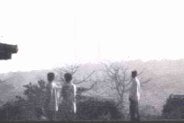NEWS RELEASES
Comments Regarding Ecuador's Eligibility for ATPDEA Designation
(Septembe 16, 2002) -- Human Rights Watch welcomes this opportunity to present views regarding whether Ecuador meets the eligibility criteria provided for in section 204(b)(6)(B) of the Andean Trade Promotion and Drug Eradication Act (ATPDEA) to qualify for enhanced trade benefits.
Yahoo! Risks Abusing Rights in China
(New York, August 9, 2002)- Yahoo! Inc. risks complicity in rights abuses if it remains a signatory to China's "Public Pledge on Self-discipline for the Chinese Internet Industry," Human Rights Watch said today. Human Rights Watch sent a letter to Yahoo!'s CEO Terry Semel, to detail these concerns, but as of today has received no response.
Ecuador: Widespread Labor Abuse on Banana Plantations Español
(New York, April 25, 2002) Banana workers in Ecuador are the victims of serious human rights abuses, Human Rights Watch charged in a new report released today.
Guatemala: Women Workers Face Discrimination
(Guatemala City, February 12, 2002) Women in Guatemala's largest female-dominated labor sectors face persistent sex discrimination and abuse, Human Rights Watch charged in a report released today.
Enron: History of Human Rights Abuse in India
(New York, January 23, 2002) -- The human rights abuses that plagued the Enron Corporation's Dabhol power plant in India from 1992 to 1998 demonstrate the need for U.S. government agencies to scrutinize such controversial projects more closely, Human Rights Watch said today.
The Oil Diagnostic in Angola: An Update
Human Rights Watch Backgrounder, March 2001
Human rights watch believes that should the oil diagnostic be implemented, it could mark a limited, but positive first step toward promoting transparency, accountability, and good governance in angola and, ultimately, greater respect for human rights. But there are pitfalls in the process that could impede the success of this program. This backgrounder details recent developments regarding the oil diagnostic and other issues related to oil and human rights in angola.
Corporate Social Responsibility
(July 28, 2000)-- Human Rights Watch believes that the Global Compact represents a positive but limited first step. It could encourage corporations to act responsibly, but only if it is implemented effectively.
United Nations Global Compact
(June 2000) -- Human Rights Watch welcomes the initiative by the United Nations Secretary General to urge transnational corporations to operate in a socially responsible manner , including efforts by corporations to promote and protect human rights in their business operations and other areas of influence.
The IMF and Angola: Oil and Human Rights
(June 22, 2000) -- The International Monetary Fund and the Angolan government reached an agreement in April 3, 2000 on reforming the Angolan economy. Part of that agreement includes a plan to monitor the government's oil revenues.
Oil Companies Complicit in Nigerian Abuses
(Lagos, February 23, 1999) -- On the eve of Nigeria's presidential elections, multinational oil companies investing in the Niger Delta are failing to respond adequately to serious human rights abuse in that region, Human Rights Watch charged in a report released today.
Enron Defense Of Human Rights Abuse Rejected
(January 28, 1999) - Human Rights Watch today disputed statements by the Enron Corporation that no human rights abuses currently plague its majority-owned power plant in Maharashtra, India. On January 25, 1999, when Human Rights Watch published a 166-page book exposing Enron's complicity in human rights abuse connected with the Dabhol Power Corporation, a company spokesperson was quoted in the press as saying that all the problems there had been "put to rest."
 |
(New York, January 25, 1999) - The U.S. energy conglomerate Enron is complicit in serious human rights abuse in India, Human Rights Watch charges in a report released today.
Enron Power Corporation owns 50 percent of the Dabhol Power Corporation, which employs security forces who routinely beat and harass people demonstrating peacefully against the power plant. The report charges that Dabhol has indirectly benefitted from other repressive government actions aimed at quelling opposition to the plant, which is the largest single foreign investment in India and the largest private power project in the world.
State of Emergency Declared in the Niger Delta
(New York, December 31, 1998) — Human Rights Watch condemns the fatal shooting by soldiers of at least three Ijaw youths holding a peaceful demonstration yesterday in Yenagoa, the capital of Bayelsa State in the Niger Delta.
WORLD REPORT
2002 2001 2000 1999
COMMENTARY
Business and Human Rights -- The Bottom Line
BACKGROUNDERS
The Oil Diagnostic in Angola: An Update
Human Rights Watch Backgrounder, March 2001
RECENT PUBLICATIONS
Tainted Harvest: Child Labor and Obstacles to Organizing on Ecuador's Banana Plantations
April 2002
en español
From The Household to The Factory: Sex Discrimination in the Guatemalan Labor Force
January 2002
en español
Toxic Justice: Human Rights, Justice And Toxic Waste In Cambodia
May 1999
Crackdown In The Niger Delta
May 1999
Update: Recent Human Rights Violations In Nigeria's Oil Producing Region
February 1999
The Price Of Oil: Corporate Responsibility and Human Rights Violations in Nigeria’s Oil Producing Communities
February 1999
The Enron Corporation:Corporate Complicity in Human Rights Violations
January 1999